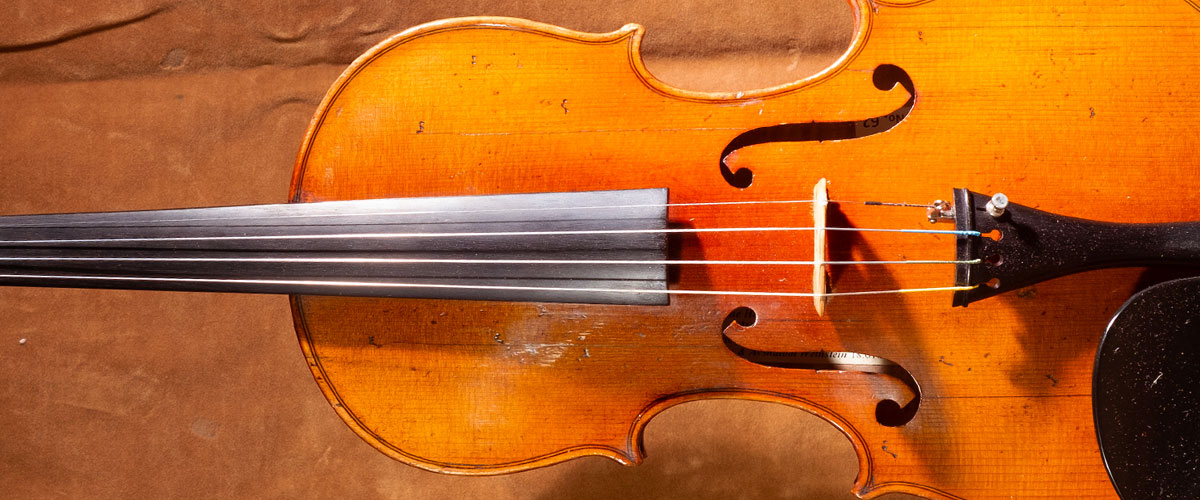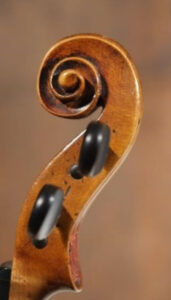Questions about Violins of Hope?
Email us at gh@jccchicago.org or call 847.763.3507.
Alex and Fanny Hecht had two sons, Fritz and Ernst. They lived in Billefeld, Germany. When the Nazis took over in Germany, they left for Holland and found a home in Amsterdam. There, Fanny, a violinist, befriended a Christian neighbor, Helena Visser, who also played the violin, as did her daughter, Helena.

 In 1943, the Nazis rounded up most Jews living in Amsterdam and sent them to Westerbrok and later on to Auschwitz. Fanny Hecht was worried. She was afraid her family would be arrested like so many Jews. One evening she knocked on the door of Mrs. Visser and asked her to hold on to the violin in case the Hechts would be deported. One day Fanny came upstairs and said, Mrs. Visser, I want you to take care of my violin, I do not want the Germans to have it, and after the war when we come back, you can give the violin back to me, and if not, the violin is yours.
In 1943, the Nazis rounded up most Jews living in Amsterdam and sent them to Westerbrok and later on to Auschwitz. Fanny Hecht was worried. She was afraid her family would be arrested like so many Jews. One evening she knocked on the door of Mrs. Visser and asked her to hold on to the violin in case the Hechts would be deported. One day Fanny came upstairs and said, Mrs. Visser, I want you to take care of my violin, I do not want the Germans to have it, and after the war when we come back, you can give the violin back to me, and if not, the violin is yours.
The sound of the violin is beautiful, and inside the violin, it says, “Antonius Stradivarius Cremona, faciebat anno (made in) 1743, so it is very old.”
Soon they were arrested and sent away. Ernst, age 17, died in Sobibor on July 9, 1943. Fanny and Alex were killed in Auschwitz on September 17, 1943. The eldest son, Fritz, died in a labor camp, Monowitz, January 18, 1945. No one survived.
The violin was kept by the Dutch family for 74 years. They insisted on giving it back to Jewish musicians. When they heard about the Violins of Hope concerts, they traveled to Israel, visited Yad Vashem where they researched the history of the Hechts, and upon realizing there is no survivor, they gave it to Amnon and Avshalom Weinstein so the violin could play and tell the tragic story of Fanny, Alex, Fritz and Ernst Hecht.